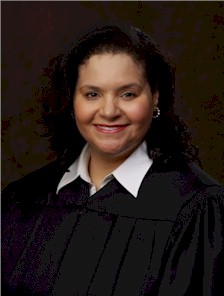In April, after the Federal Trade Commission banned non-compete employment agreements nationwide, Dallas-based global tax services firm Ryan filed a lawsuit in federal court challenging the new rule. On Tuesday, Ryan got a big win in a Texas courtroom.

U.S. District Judge Ada Brown
U.S. District Judge Ada Brown of the Northern District of Texas set aside the FTC’s ban on non-competes, which means the rule can’t be enforced or take effect nationwide.
The ban had been set to take effect on September 4.
In her ruling, Judge Brown found that “the text and the structure of the FTC Act reveal the FTC lacks substantive rulemaking authority with respect to unfair methods of competition” and that “the rule is arbitrary and capricious because it is unreasonably overbroad without a reasonable explanation.”
Brown emphasized “the role of an administrative agency is to do as told by Congress, not to do what the agency think[s] it should do.” Brown is a former trial judge of the Dallas County courts and a former Justice of the Fifth Court of Appeals of Texas. She was nominated as a U.S. District judge by then-President Donald Trump and confirmed by the U.S. Senate in 2019.
“Today we prevail in protecting the very foundation of innovation that drives our economy from the overreach of the FTC in its misguided mission to invalidate millions of employment contracts,” Ryan Chairman and CEO G. Brint Ryan said in a statement. “Non-competes serve as a cornerstone of mutual trust between employer and employee. As a champion for our clients and business owners nationwide, Ryan stands proud in the role we’ve played to protect businesses’ intellectual property and ongoing investment in employee training and skill development.”
FTC considering an appeal
FTC spokesperson Victoria Graham addressed the ruling by saying, “We are disappointed by Judge Brown’s decision and will keep fighting to stop noncompetes that restrict the economic liberty of hardworking Americans, hamper economic growth, limit innovation, and depress wages.”
“We are seriously considering a potential appeal,” she added.
Graham noted that Graham’s ruling “does not prevent the FTC from addressing noncompetes through case-by-case enforcement actions.”
When the non-competes ban was announced in April, FTC Chair Lina Khan said there were good reasons for the ban.
“Non-compete clauses keep wages low, suppress new ideas, and rob the American economy of dynamism, including from the more than 8,500 new startups that would be created a year once noncompetes are banned,” Khan said in her April statement. “The FTC’s final rule to ban non-competes will ensure Americans have the freedom to pursue a new job, start a new business, or bring a new idea to market.”
Ryan’s lawsuit—filed in April less than an after the FTC announced its ban—challenged the commission’s authority to issue the rule, and said it “imposes an extraordinary burden on business owners seeking to protect their IP and to retain talent within the professional services industry.”
The U.S. Chamber of Commerce, Business Round Table, Texas Association of Business, and Longview Chamber of Commerce joined the case shortly after it was filed, along with “a vast array of organizations” that filed briefs supporting Ryan’s position, the company noted.
“Judge Brown’s ruling preserves the economic freedom of businesses and their employees to enter into non-compete agreements,” John Smith, Ryan’s chief legal officer and general counsel, said in a statement. “They play a vital role in safeguarding intellectual property and innovation, building trust within businesses, and investing in training their people.”
![]()
Get on the list.
Dallas Innovates, every day.
Sign up to keep your eye on what’s new and next in Dallas-Fort Worth, every day.




























